Alumni Bookshelf
Marian Edelman Borden, BA ’70, co-wrote the mystery Murder Takes the Cake (Echelon Press Publishing, 2009) with Rhonda Dossett under their pseudonym Evelyn David. The Midwest Book Review calls the second mystery in the Sullivan Investigations series “light-hearted fun, with a little mystery; a little romance; a little family dysfunction; and several out-of-the-ordinary adventures thrown in to make it a fun-filled whodunit.”
Margaret Carroll, BA ’82, usually a writer of romantic comedy, has written the thriller A Dark Love (Avon, 2009). The novel follows a GW graduate as she escapes the clutches of her insane, manipulative husband. The book features scenes in the Foggy Bottom area.
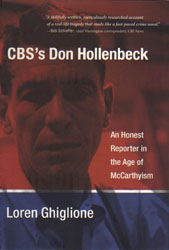 Damon Coppola, BS ’96, MEM ’03, published Communicating Emergency Preparedness: Strategies for Creating a Disaster Resilient Public (Auerbach Publications, 2009). The book presents the best ways to inform communities about disaster risk factors, response plans, and emergency procedures without provoking panic or paranoia.
Damon Coppola, BS ’96, MEM ’03, published Communicating Emergency Preparedness: Strategies for Creating a Disaster Resilient Public (Auerbach Publications, 2009). The book presents the best ways to inform communities about disaster risk factors, response plans, and emergency procedures without provoking panic or paranoia.
Noralee Frankel, MA ’77, PhD ’83, published Stripping Gypsy: The Life of Gypsy Rose Lee (Oxford University Press, 2009) in May. In her work, Frankel places Lee’s life in social and political context while detailing her fascinating entertainment career. Lee, Frankel writes, created and recreated her own identity to fit the changing times.
Loren Ghiglione, PhD ’76, published CBS’s Don Hollenbeck: An Honest Reporter in the Age of McCarthyism (Columbia University Press, 2008). In the book, Ghiglione portrays Hollenbeck as a hardworking reporter with a complex personality who struggled with some of the most difficult issues of his time.
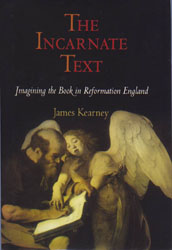 John Maxwell Hamilton, PhD ’83, published Journalism’s Roving Eye (Louisiana State University Press, 2009). In his work, Hamilton provides a sweeping and definitive history of American foreign news reporting from its inception to the present day. He also chronicles the economic and technological advances that have influenced overseas coverage as well as the personalities who shaped readers’ perceptions of the world across two centuries.
John Maxwell Hamilton, PhD ’83, published Journalism’s Roving Eye (Louisiana State University Press, 2009). In his work, Hamilton provides a sweeping and definitive history of American foreign news reporting from its inception to the present day. He also chronicles the economic and technological advances that have influenced overseas coverage as well as the personalities who shaped readers’ perceptions of the world across two centuries.
Roger B. Jeans Jr., MPhil ’72, PhD ’74, published his new book Terasaki Hidenari, Pearl Harbor, and Occupied Japan: A Bridge to Reality (Lexington Books, 2009). The book offers a carefully crafted biography of the Japanese diplomat who played important roles in U.S.-Japanese relations before and after the war.
James Kearney, BA ’93, an assistant professor of English at the University of California, Santa Barbara, completed work on The Incarnate Text: Imagining the Book in Reformation England (University of Pennsylvania Press, 2009), which explores the central role that the material book played in the cultural imagination of Reformation England.
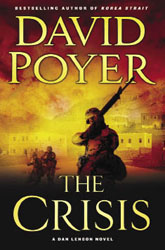 Barry Mazor, BA ’71, offers a lively look at Jimmie Rodgers’ career in Meeting Jimmie Rodgers: How America’s Original Roots Music Hero Changed the Pop Sounds of a Century (Oxford University Press, 2009). Mazor traces Rodgers’ career from working-class obscurity to the top of the music scene. The book also focuses on how Rodgers forever changed music and influenced numerous contemporary performers, such as Bob Dylan, Dolly Parton, and Beck.
Barry Mazor, BA ’71, offers a lively look at Jimmie Rodgers’ career in Meeting Jimmie Rodgers: How America’s Original Roots Music Hero Changed the Pop Sounds of a Century (Oxford University Press, 2009). Mazor traces Rodgers’ career from working-class obscurity to the top of the music scene. The book also focuses on how Rodgers forever changed music and influenced numerous contemporary performers, such as Bob Dylan, Dolly Parton, and Beck.
Kathy Orton, BA ’89, takes a comprehensive look at Division I basketball’s least understood conference in Outside the Limelight: Basketball in the Ivy League (Rutgers University Press, 2009). Orton is a sportswriter for The Washington Post.
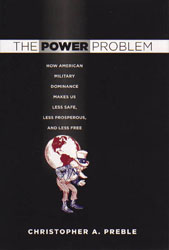 Garrett Peck, MA ’96, wrote The Prohibition Hangover (Rutgers University Press, 2009), which gives a panoramic assessment of alcohol in American culture and history. In the book, he explores the often-contradictory social history of alcohol in America from the end of Prohibition in 1933 to the 21st century, as well as the modern American temperament toward alcohol amid the $189 billion-a-year industry.
Garrett Peck, MA ’96, wrote The Prohibition Hangover (Rutgers University Press, 2009), which gives a panoramic assessment of alcohol in American culture and history. In the book, he explores the often-contradictory social history of alcohol in America from the end of Prohibition in 1933 to the 21st century, as well as the modern American temperament toward alcohol amid the $189 billion-a-year industry.
David Poyer, MA ’86, published his 34th book, The Crisis (St. Martin’s Press, 2009). The novel, set in East Africa, is built around a humanitarian intervention in the drought-and famine-stricken state of Ashaara. Poyer’s novel explores such complex questions as: Which is less harmful, anarchy or dictatorial rule?
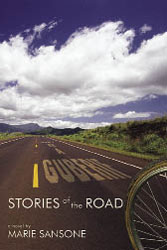 Christopher Preble, BA ’89, explores the aims, costs, and limitations of the use of America’s military power in The Power Problem: How American Military Dominance Makes Us Less Safe, Less Prosperous, and Less Free (Cornell University Press, 2009). Preble notes that Americans are right in their desire to reduce military presence abroad and furthers his argument by stating that the possession of vast military strength runs contrary to the original intent of founders, shifting the balance of power away from individual citizens and toward the central government.
Christopher Preble, BA ’89, explores the aims, costs, and limitations of the use of America’s military power in The Power Problem: How American Military Dominance Makes Us Less Safe, Less Prosperous, and Less Free (Cornell University Press, 2009). Preble notes that Americans are right in their desire to reduce military presence abroad and furthers his argument by stating that the possession of vast military strength runs contrary to the original intent of founders, shifting the balance of power away from individual citizens and toward the central government.
In her novel Stories of the Road (Inkwater Press, 2009), Marie Sansone, BA ’78, provides a fictionalized bicycle tour of bicentennial America during the summer of 1976 interspersed with Native American, pioneer, and ecological stories. The opening chapters are set at The George Washington University.
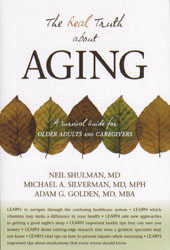 Neil Shulman, BA ’67, wrote The Real Truth About Aging: A Survival Guide for Older Adults and Caregivers (Prometheus Books, 2009) with Michael A. Silverman and Adam G. Golden. The book offers advice from three experts in geriatric medicine on healthy aging, the modern and often confusing health care system, and the medical issues affecting frail, older adults.
Neil Shulman, BA ’67, wrote The Real Truth About Aging: A Survival Guide for Older Adults and Caregivers (Prometheus Books, 2009) with Michael A. Silverman and Adam G. Golden. The book offers advice from three experts in geriatric medicine on healthy aging, the modern and often confusing health care system, and the medical issues affecting frail, older adults.
Inspired by her GW studies in Central and Eastern European history, economics, and politics, Gail Gibson Vandagriff, MA ’72, wrote The Last Waltz (Shadow Mountain, 2009). Vandagriff’s historical epic recounts the life of Amalia, an extraordinary Viennese woman with ties to both socialism and the aristocracy. Through Amalia’s relationships with the men in her life, a Prussian soldier, a Polish doctor, and an Austrian baron, the reader experiences the darkest of wars and Austria’s struggle to become a democracy.
